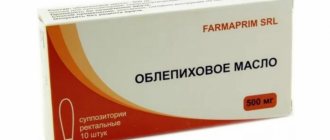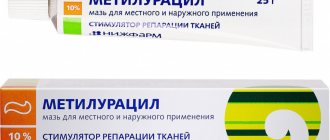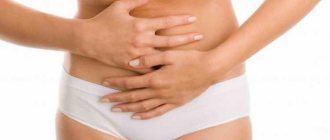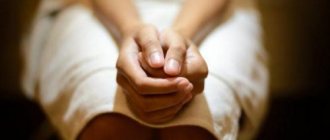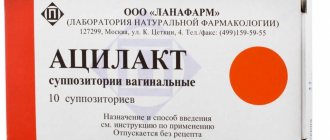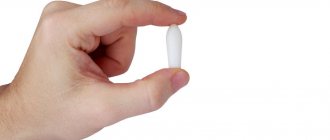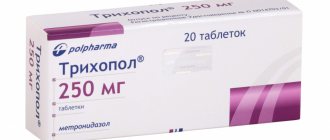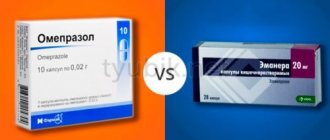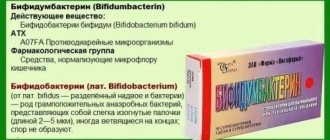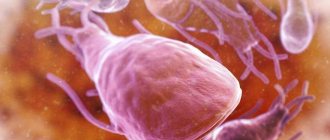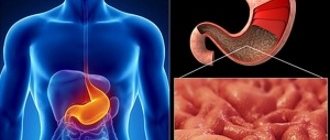Hemorrhoids are a common disease today. Office work requiring a sedentary lifestyle. Computerization of children and adolescents has led to the spread of the disease among all segments of the population; it is regularly diagnosed in young people. The disease affects half of women who have given birth and a quarter of pregnant women.
Symptoms of the disease:
- pain, itching in the anal area;
- formation, expansion, prolapse of hemorrhoids consisting of rectal veins;
- bleeding during bowel movements, mucus discharge.
There are different types of hemorrhoids:
- At the actual location. It is divided into two types: external and internal.
- According to genetic predisposition, hemorrhoids are divided into hereditary and acquired.
- Depending on the nature of the disease, it is divided into primary (the disease itself), secondary (a complication of another disease).
Unpleasant symptoms are pain and bleeding. During treatment, it is necessary that the patient’s symptoms are absent or suppressed for a while. Suppositories for hemorrhoids with belladonna are a proven option.
Beneficial properties of belladonna: poison turns into medicine
Belladonna , or belladonna , is a poisonous plant of the nightshade family. Other names: wolfberry , sleepy dope .
In our country it grows in the Krasnodar region, in the Crimea, on the slope of the Caucasus Mountains. In Europe, it is cultivated specifically for the pharmaceutical industry, which uses all parts of the plant, since they all contain alkaloids of the atropine group.
Belladonna means “beautiful woman” in Italian. Several centuries ago, Italian women put it in their eyes. The pupils dilated, the gaze acquired mystery, a special magnetism. Belladonna was also used as a poison for unwanted opponents.
The plant was called belladonna, wolfberry, and rabies in Russia. The atropine contained in the composition can cause hallucinations, lead to rage, and a state of aggression.
Hyoscyamine, apoatropine, scopolamine, balladonine are extracted from the leaves of Belladonna, and cushygrin is extracted from the roots. These substances are the strongest poison . But scientists were able to calculate the dosage at which they acquire analgesic, antispasmodic, anti-inflammatory properties, acting safely.
Belladonna is included in many medicines. They block the functions of nerve muscle spasms - cholinergic receptors, quickly relieve pain, restore peristalsis, calm, reduce the tone of the uterus, bronchi, biliary organs, and intestines.
Preparations with belladonna are available in different forms (tablets, suppositories, ointments) and are used in the treatment of the digestive system, gynecology, urology, neuropathology, and other branches of medicine. They have a cumulative effect and prevent unpleasant symptoms in the future.
Such medications should be used under the supervision of a physician; in no case should the dosage be exceeded. Atropine contained in belladonna is a poison that can lead to a number of negative consequences, including death.
It is extremely important to strictly follow the instructions for use and doctor’s recommendations.
According to patient reviews, belladonna extract in suppositories for hemorrhoids quickly relieves pain, itching, and burning.
Belladonna extract rectal suppositories No. 5x2
Name
Belladonna extract.
Release forms
Suppositories.
INN
Belladonna leaves.
FTG
Antispasmodic agent of plant origin.
Description
Suppositories range from white with a yellowish tint to light yellow with a brownish tint, with minor inclusions.
Compound
1 suppository contains: active ingredient: belladonna extract, thick, aqueous-alcoholic ((4.8-5.2): 1), (extractant 20% (v/v) ethanol) extract, which contains at least 1.3% of the amount alkaloids, calculated as hyoscyamine (atropine base) and dry matter - 0.23 mg; excipients: phenol, solid fat.
Pharmacotherapeutic group
Belladonna alkaloids. ATX code A03BA04.
Pharmacological properties
Pharmacodynamics. Suppositories with belladonna extract have an antispasmodic effect, eliminating spasm of the intestinal muscles, helping to reduce straining and facilitate bowel movements. Belladonna extract contains alkaloids of the atropine group (hyoscyamine, atropine, scopolamine, apoatropine, etc.). The sum of active substances relaxes the smooth muscles of the gastrointestinal tract, biliary and urinary systems. The antispasmodic effect is due to the m-anticholinergic effect of the drug. When a suppository is introduced into the rectum, the effect of the drug appears after 15-90 minutes. The duration of the resorptive effect of alkaloids ranges from 2 to 6 hours. Pharmacokinetics. No data.
Indications for use
In the complex treatment of hemorrhoids and anal fissures.
Contraindications
Hypersensitivity to belladonna and other components of the drug. Diseases of the cardiovascular system in which an increase in heart rate may be undesirable: atrial fibrillation, tachycardia, chronic heart failure, coronary heart disease, mitral stenosis, severe arterial hypertension. Glaucoma. Prostatic hypertrophy with urinary retention or predisposition to urinary retention. Myasthenia. Diseases of the gastrointestinal tract, accompanied by obstruction. Hyperthermic syndrome. Thyrotoxicosis. Acute bleeding. Pregnancy, lactation period; children under 18 years of age.
Precautionary measures
Before starting treatment, consult your doctor! Do not use the drug for longer than the prescribed period without consulting a doctor! In the presence of large hemorrhoids, after insertion of the suppository, pain may appear due to the suppository pressing on the hemorrhoid; the pain may continue for 5-10 minutes until the suppository dissolves. When using the drug, kidney function should be monitored. Use with caution in patients with prostatic hypertrophy without urinary tract obstruction; with Down's disease; with cerebral palsy; patients with mild to moderate renal failure; with reflux esophagitis, with a hiatal hernia combined with reflux esophagitis; inflammatory bowel diseases, including ulcerative colitis and Crohn's disease, megacolon; patients with xerostomia; elderly patients, weakened patients; for chronic lung diseases accompanied by bronchial obstruction; for chronic lung diseases, accompanied by the formation of difficult to separate sputum, especially in weakened patients; with autonomic (autonomic) neuropathy; organic diseases of the nervous system, chronic heart failure, coronary heart disease. If there is no effect or the condition worsens (severe pain, anal bleeding, suspected blood in the stool, as well as other alarming symptoms), you must stop using the drug and consult a doctor.
Use during pregnancy or breastfeeding
Not recommended for use during pregnancy and breastfeeding.
The ability to influence the reaction rate when driving a vehicle or working with other mechanisms
Considering the possibility of adverse reactions such as dizziness, while using the drug you should refrain from driving vehicles or operating other mechanisms. Children There is no data on the safety and effectiveness of the drug in children.
Interaction with other drugs
If you are using any other medications, be sure to consult your doctor about the possibility of using the drug. When used with monoamine oxidase inhibitors, cardiac arrhythmia occurs; with quinidine, novocainamide, a summation of the anticholinergic effect is observed. May reduce the duration and depth of the effects of narcotic drugs, weaken the analgesic effect of opiates. When used simultaneously with diphenhydramine or diprazine, the effect of the drug increases; with nitrates, haloperidol, corticosteroids for systemic use - the likelihood of increasing intraocular pressure increases; with sertraline - the depressive effect of both drugs increases; with spironolactone, minoxidil - the effect of spironolactone and minoxidil decreases; with penicillins - the effect of both drugs is enhanced, with nizatidine - the effect of nizatidine is enhanced, with ketoconazole - the absorption of ketoconazole is reduced, with ascorbic acid and attapulgite - the effect of atropine is reduced, with pilocarpine - the effect of pilocarpine in the treatment of glaucoma is reduced, with oxprenolone - the antihypertensive effect of the drug is reduced. Under the influence of octadin, it is possible to reduce the hyposecretory effect of atropine, which weakens the effect of M-cholinomimetics and anticholinesterase drugs. When used simultaneously with sulfonamide drugs, the risk of kidney damage increases; with drugs containing potassium, the formation of intestinal ulcers is possible; with non-steroidal anti-inflammatory drugs, the risk of gastric ulcers and bleeding increases. The effect of the drug can be enhanced with the simultaneous use of other drugs with antimuscarinic effect: M-anticholinergic drugs, antiparkinsonian drugs (amantadine), antispasmodics, some antihistamines, drugs of the butyrophenone group, phenothiazines, dispyramides, quinidine and tricyclic antidepressants, non-selective inhibitors of neuronal monoamine reuptake. Inhibition of peristalsis under the influence of atropine can lead to changes in the absorption of other drugs.
special instructions
The possible penetration of belladonna alkaloids through the blood-brain barrier and possible interactions with drugs that affect the central nervous system should be taken into account. In therapeutic doses, belladonna alkaloids have a moderate stimulating effect on the central nervous system, in large doses - an stimulating effect, in toxic doses - agitation, hallucinations, followed by inhibition and coma. The simultaneous administration of suppositories with belladonna extract and other drugs with anticholinergic activity should be avoided, since the likelihood of side effects increases. Belladonna extract helps reduce the rate of absorption of concomitantly used drugs and other drugs due to inhibition of the motor function of the gastrointestinal tract.
Directions for use and doses
Used by adults. When using rectal suppositories, wash your hands thoroughly with soap and water. The procedure must be carried out in complete cleanliness. Prepare wet wipes or a handkerchief soaked in water in advance. Lie on your side with your knees close to your stomach. This position is the most comfortable for the procedure, as it allows you to minimize discomfort. Remove the suppository from the packaging: remove the suppository from the packaging by cutting it with scissors along the contour of the suppository. The candle is taken with the thumb and middle finger of the right hand in the middle of the widest part, the index finger rests on the blunt end of the candle. The candle is directed with the free end towards the anus and pushed with the index finger into the anal canal until it is completely immersed to a depth of 2-3 cm. Carry out the procedure carefully, without applying unnecessary pressure. Despite the fact that the suppository has a streamlined shape, careless use can injure the mucous membrane. Stay in bed for about 20 minutes. Wipe your hands with a previously prepared wet napkin or handkerchief. Suppositories are used 1 suppository 2-3 times a day. The duration of the course of treatment is determined by the doctor individually, taking into account the course and severity of the disease, the achieved therapeutic effect, and the general treatment tactics. The recommended duration of treatment is 5-7 days.
Overdose
Symptoms: increased manifestations of adverse reactions, nausea, vomiting, tachycardia, decreased blood pressure, agitation, irritability, tremor, convulsions, insomnia, drowsiness, hallucinations, hyperthermia, depression of the central nervous system, suppression of the activity of the respiratory and vascular centers. Treatment. Gastric lavage, parenteral administration of cholinomimetides and anticholinesterase drugs. Treatment is symptomatic.
Side effect
From the gastrointestinal tract: dry mouth, feeling of thirst, impaired taste, dysphagia, decreased intestinal motility up to agony, decreased tone of the biliary tract and gallbladder. From the kidneys and urinary tract: difficulty and retention of urination. From the cardiovascular system: palpitations, arrhythmia, including extrasystole, myocardial ischemia, hot flashes. Vascular disorders: facial redness, feeling of hot flashes. From the nervous system: headache, dizziness, psychomotor agitation, convulsions. On the part of the visual organs: dilated pupils, photophobia, paralysis of accommodation, increased intraocular pressure. From the respiratory system and mediastinal organs: a decrease in secretory activity and bronchial tone, which leads to the formation of viscous, difficult to cough up sputum. From the skin and subcutaneous tissue: skin rash, urticaria, exfoliative dermatitis, hyperemia. From the immune system: anaphylactic reactions, anaphylactic shock. Other: decreased sweating, dry skin, dysarthria.
Best before date
2 years. Do not use the drug after the expiration date indicated on the package.
Storage conditions
Store in a place protected from light at temperatures between 8 °C and 15 °C. Keep out of the reach of children.
Package
5 suppositories per strip. 2 strips each along with an insert in a cardboard box.
Vacation rules
Over the counter.
Buy Belladonna extract rectal suppositories No. 5x2 in the pharmacy
Price for Belladonna extract rectal suppositories No. 5x2
Instructions for use for Belladonna extract rectal suppositories No. 5x2
Composition and release form: a simple solution to many problems
Rectal suppositories are produced at several pharmaceutical enterprises in the country, including Nizhpharm OJSC.
Each contains 15 mg of thick belladonna extract. Auxiliary components are a fatty base responsible for shelf life, a characteristic shape for ease of administration, and phenol.
Packed in blisters of 5 pieces. One package – 10 candles, 2 plastic blisters.
Pharmacological action: the variety is impressive
The therapeutic effect of belladonna suppositories for hemorrhoids is provided by belladonna extract and phenol, which has a mild laxative effect.
They help with the acute form of the disease, fight attacks of chronic hemorrhoids, anal fissures, and prevent the formation of fistulas.
They operate locally. The active substances dissolve, quickly relieving attacks of inflamed areas of the rectum. Prescribed after operations to remove hemorrhoids for tissue healing.
Basic actions:
- Analgesic. Anesthetizes quickly, for a long time, relieves acute and dull pain characteristic of the chronic form.
- Antipruritic. Eliminates itching, burning, facilitates movement, rest.
- Laxative. Easy bowel movement as a result of increased sphincter muscle tone.
- Anti-inflammatory. Removes redness and irritation.
- Bactericidal. Eliminates infections of the rectum, disinfects.
- Reducing the size of external and internal hemorrhoidal cones.
- Healing . Regenerates damaged tissue, quickly heals wounds.
- Antispasmodic. Eliminates spasms of smooth muscles of all organs of the abdominal cavity and pelvis.
It is recommended to be used separately or as part of complex treatment of diseases.
Belladonna normalizes the secretory functions of the pancreas and salivary glands, increases the heart rate, and increases the tone of the sphincter muscles.
In addition to antihemorrhoidal, medications with belladonna extract have a wide range of therapeutic effects:
- stimulate physical and mental activity, having a stimulating effect on the nervous system;
- dilates the bronchi, restores the respiratory process;
- has a positive effect on the state of the digestive system;
- facilitates the functioning of the heart and blood vessels;
- relieves spasms of the smooth muscles of the pelvic organs, stimulates labor, softens the cervix;
- improves the condition of the visual organs, even after injuries;
- activates metabolic and recovery processes;
- improves blood microcirculation.
This makes it possible to prescribe rectal suppositories in various fields of medicine - gastroenterology, gynecology, neurology, ophthalmology, etc.
Indications for use: what you need to know
It is recommended to use for the treatment of diseases associated with painful symptoms, spasms, wound infections, the need for antibacterial effects, and pathologies of the organs of vision.
The large list of indications for use of the drug includes:
- hemorrhoids of any stage, external, internal form;
- cracks in the rectum;
- ulcers, erosions of the stomach, duodenum;
- pathologies of the kidneys, liver;
- gastritis with high stomach acidity;
- stones in the gallbladder, its ducts;
- inflammatory diseases of the genitourinary organs;
- bronchitis, bronchial asthma;
- bradycardia, angina pectoris, other heart diseases;
- spasms of arteries in the retina, injury to the organs of vision;
- pain during the menstrual cycle;
- cervical erosion;
- inflammatory process in the appendages;
- impaired coordination of movements;
- intoxication of the body due to poisoning.
Traditional medicine recipes call for the use of a decoction of belladonna roots for rheumatism, gout, and neuralgia.
Belladonna extract is used very carefully due to its high toxicity.
Instructions for use: simple tips
The use of rectal suppositories with belladonna for hemorrhoids is primarily associated with the elimination of pain and infectious processes in the rectum.
The recommended dosage and duration of treatment depend on the proctologist’s prescriptions and are related to the individual characteristics of the patients and the nature of the disease.
General rules:
- Cleanse the intestines so that the active components begin to act faster and more effectively. If you cannot go to the toilet on your own, give an enema.
- Wash your hands and crotch thoroughly with a mild antibacterial agent and dry.
- Lie on your side, raise one leg to your chest or stomach.
- Remove the suppository from the package and carefully insert it into the anus.
- Push as far as possible to a depth of at least 1.5 cm.
- Lie down for half an hour so that the candle does not leak.
Usually 2-3 suppositories per day are enough for a maximum of 7 days. If necessary, the doctor can prescribe up to 10 suppositories per day, but no more, in order to avoid overdose and its consequences.
In case of severe pain, it can be used without prior bowel movement.
How to use belladonna suppositories for hemorrhoids during pregnancy
During pregnancy, the disease worsens in most women.
Suppositories with belladonna extract are prescribed to:
- Reduce painful symptoms, prevent the development of hemorrhoids during pregnancy, after childbirth, eliminate constipation, normalize stool.
- Relax the smooth muscles of the mother's cervix for maximum dilatation, facilitate, speed up, and relieve pain.
Contraindications for use during pregnancy and before childbirth:
- diarrhea;
- decreased uterine tone;
- breastfeeding an older child;
- tendency to uterine bleeding;
- pathologies of the kidneys, heart;
- glaucoma;
- intestinal obstruction;
- stones in the gallbladder, its ducts;
- problems with the digestive system - colitis, stomach ulcers, gastritis;
- dysfunction of the thyroid gland.
The drug should not be used in the early stages of pregnancy due to the threat of miscarriage or intrauterine pathologies of the child.
If there are no contraindications, the doctor has the right to prescribe the drug vaginally or rectally, 2-3 pieces over the course of several days.
After childbirth while breastfeeding, the use of the medicine is prohibited.
Belladonna suppositories in gynecology
Used vaginally, often prescribed by gynecologists in therapy:
- Women's diseases associated with infectious and inflammatory processes that cause severe pain - salpingitis (pathologies of the fallopian tubes), endometritis (inflammation of the uterus), adnexitis (diseases of the appendages). Application regimen: 3 suppositories per day for a week.
- Hormonal imbalances causing pain during the menstrual cycle, uterine fibroids, hyperplasia, endometriosis.
Rectal suppositories with belladonna are used after gynecological operations. They eliminate pain and prevent the formation of adhesions. Up to 10 suppositories are allowed for one to two days in case of severe cramps.
Used as part of complex treatment as prescribed by a gynecologist. Sold in pharmacies with a prescription.
For male pathologies
Belladonna suppositories can be used to treat prostatitis and infectious diseases of the genitourinary organs.
But in such situations they are not very effective and have many contraindications. Their use is prohibited for many male diseases, including cancer.
Urologists rarely prescribe suppositories with belladonna extract. For pain relief in this case, they prefer suppositories with papaverine.
Reviews of belladonna candles
Maria, Izhevsk: I first became acquainted with candles during my first birth. Shortly before conception, I felt itching and burning in the anal area. During pregnancy, hemorrhoids worsened, bleeding and constipation appeared, and she consulted a doctor. I recommended candles with belladonna. At first I strongly doubted the effectiveness due to the budget. Without doctor’s recommendations, I didn’t dare to take risks and buy something more expensive. At first it was unpleasant (the hemorrhoids became severely aggravated due to pregnancy), and I felt an unpleasant burning and tingling sensation. After a short time, my stomach began to twist. After a couple of days of use, positive changes in the disease began.
The itching disappeared first, followed by bleeding after a while. Halfway through the course, stool returned to normal and constipation disappeared. Before giving birth, suppositories were prescribed - they help relax the cervix, making labor easier. It went smoothly, without complications. I was pleasantly surprised by the inexpensive and effective drug. It’s worth going to the doctor first - the side effects are serious, you shouldn’t neglect them!
Alena, Vyksa: Painful periods have begun. The doctor explained - due to the incorrect position of the uterus. He prescribed a diet and a gentle daily routine, advised me to sleep more and be less nervous. He advised me to relieve the pain with an available analgesic. I bought candles with belladonna. I decided not to consult the doctor - I regretted it. During the first half hour, the pain subsided and the body felt relaxed. Afterwards, unpleasant symptoms began: my vision became dark, my head was spinning. I lay there for half an hour, started vomiting, and my heart began to beat rapidly.
She called a doctor, but the symptoms subsided by the time she arrived. The doctor explained: belladonna is poisonous, it needs to be selected individually for a specific person. I didn’t sleep well at night, but the drug relieved the pain. Do not prescribe treatment yourself without knowing how the body will react.
Anton, Chelyabinsk: I use these candles. The doctor prescribed it when he made the diagnosis. If hemorrhoids appear again, I go to the pharmacy and buy belladonna suppositories. It relieves inflammation as if by hand. I heard about side effects, but didn't feel anything. I highly recommend it.
Contraindications: all that is important
Like any other drug, it is contraindicated primarily in case of individual intolerance to the components in the composition. In addition, in cases:
- glaucoma;
- intestinal obstruction, atony;
- pregnancy in the 1st, 2nd trimester;
- lactation period;
- bleeding;
- acute or chronic colitis;
- prostate adenomas;
- disorders of urination, urine outflow;
- work associated with increased concentration;
- atrial fibrillation, other cardiac disorders;
- for diabetes mellitus;
- cancerous tumors of the intestine, prostate gland.
Preparations with belladonna are prohibited from being prescribed to children under 14 years of age.
For whom the drug is contraindicated
Belladonna has restrictions on its use. Suppositories with it are prohibited in pediatric practice and are not prescribed to pregnant and lactating women. This is indicated in the instructions for the drug. In addition, suppositories should not be used if there are pathologies such as:
- Glaucoma or suspicion of it.
- Myasthenia gravis (bulbar palsy).
- Intestinal atony and constipation.
- Heart failure, rhythm disturbances.
- Problems with the prostate gland.
- History of gallstone disease.
- Individual sensitivity to the drug.
- Suspicion of intestinal obstruction.
- Exacerbation of chronic colitis.
With caution and under the supervision of a physician, belladonna in suppositories is prescribed to patients with hyperfunction of the thyroid gland, cardiac and renal pathology, hypertension and reflux esophagitis.
Possible side effects. Be careful, poison!
Preparations based on belladonna are well tolerated if the recommendations for dosage and duration of use are followed.
Otherwise, disturbances in the functioning of organs and organ systems may occur, including:
- From the gastrointestinal tract - stomach colic, problems with stool, dry mouth, loss of taste, appetite, nausea accompanied by vomiting.
- From the nervous system - dilated pupils, convulsions, increased excitability, headache, dizziness, decreased attention, sleep disturbances, nervousness, irritability, hallucinations, delirium, decreased psychomotor skills, slow speech.
- Allergic reactions - Quincke's edema, skin rashes, severe itching.
- Ophthalmological problems - increased eye pressure, deterioration in clarity and visual acuity.
- From the cardiovascular system - rapid heartbeat, chest pain.
- From the urinary system - delayed urine outflow.
Men may have problems with potency and erection, while breastfeeding women may experience a loss of breast milk.
If one of the above symptoms appears, stop using it and consult a doctor immediately.
Drug interactions and overdose
The drug can be taken with different drugs, but it should be borne in mind that the use of Anuzole can increase the effects of medications belonging to the following groups:
- antispasmodics;
- anticholinergics;
- sedatives;
- sleeping pills.
In case of overdose, symptoms such as:
- nausea;
- vomiting;
- overexcitement;
- convulsions;
- urinary retention;
- increased body temperature;
- increased sweating.
Interaction with other drugs
Incompatibility with other drugs depends on the atropine in the composition. It either enhances or reduces the effect of using drugs containing belladonna extract.
In combination with medications containing caffeine or morphine, they reduce their properties.
When taken simultaneously with antidepressants and strong painkillers, which contain barbiturates, their effectiveness increases.
Be careful!
Belladonna suppositories are not used in antibiotic treatment.
Causes cardiac arrhythmia when taken simultaneously with drugs that contain digitalis.
If you are taking any medications, you must tell your doctor.
Analogs
Rectal suppositories with the addition of belladonna extract are available in several names, different in composition and some properties:
Rectal suppositories with belladonna extract
Main actions: quick relief of pain in acute hemorrhoids, relief of the inflammatory process, prevention of infection of bleeding wounds and anal fissures. Contains phenol and is effective for internal knots.
Anuzol
Additionally they contain bismuth and zinc compounds, which eliminate itching and have a drying effect. They have antiseptic properties. They begin to work in 20 minutes, the effect lasts up to 5 hours. If you need to relieve swelling, buy Anuzol.
Use 3 suppositories per day.
Price in Russia – from 120 rubles per package.
Betiol
Used for the combined form of hemorrhoids. The composition contains ichthyol, which prevents the appearance of fistulas and purulent inflammations. In case of damage to the mucous membrane and skin around the anus, purchase Betiol.
A package of 10 suppositories costs from 60 rubles.
Viburkol
Homeopathic remedy. Contains plantain, chamomile, nightshade.
Improves the condition of vascular walls, has anti-inflammatory, analgesic, and anti-edematous effects. Increases resistance to infections and immunity.
Analogues of belladonna candles, taking into account the ATC code:
- Proctosan;
- Procto-Glyvenol;
- Bezornil;
- suppositories with papaverine;
- belladonna candles;
- Proctosedyl;
- Doloproct.
Any drug requires consultation with a doctor; many are not sold without a prescription.
Read the instructions for use.
Pharmacodynamics
The product is used to treat hemorrhoids. Characterized by complex effects:
- antispasmodic (prevents spasms);
- antiseptic (disinfects);
- drying;
- anti-inflammatory;
- astringent.
Thanks to this, the drug is effective for the treatment of anal fissures, itching and other unpleasant consequences. Xeroform acts as an antiseptic and has an astringent and drying effect. It helps to cope with inflammatory processes due to disinfection.
Zinc sulfate also acts as a drying agent. It also has an anti-inflammatory effect. Belladonna extract (also called belladonna) enhances sphincter tone, blocks spasms, allows muscles to relax, and also contributes to the treatment of hemorrhoids.
Other forms of release
In addition to the most popular rectal suppositories in pharmacology, the following products are available:
- eye drops with the addition of atropine, Atropine;
- herbal mixture for the treatment of asthma Asthmatol;
- belladonna extract thick;
- dried belladonna extract - the basis for the preparation of mixtures, suppositories, tablets;
- the drug Solutan, which has an antispasmodic and expectorant effect. Used for diseases of the bronchopulmonary system;
- ointments for topical use for hemorrhoids, neuralgia, nerve inflammation, joint and muscle pain;
- dry herbs for neuralgia, gout;
- juice from the roots of the plant;
- tincture of belladonna leaves in alcohol, which is part of Zelenin drops.
The use of any form depends on the disease; consultation with a doctor is required.
Pills
Gastric - with the addition of extracts of belladonna, valerian, wormwood. They are an antispasmodic and analgesic. Used for diseases of the gastrointestinal tract, ulcers, gastritis, erosions, stones in the bladder, its ducts.
Corbella - treat Parkinson's disease, atherosclerosis, intoxication of the body due to poisoning, incl. potassium permanganate.
Lenbiren - for increased irritability, sleep disorders, menopause, neurodermatitis, vegetative-vascular dystonia.
And:
- Ballataminal;
- Bellaspon;
- Becarbon from the stomach with high acidity;
- Besalol;
- Bepasal;
- Ballalgin;
- Bellasthesin;
- Ballataminal;
- Belloid.
It is advisable to use drugs only after consultation with a doctor, do not forget that belladonna is a poison.
Belladonna suppositories for hemorrhoids are effective, accessible, and low in price. Relieves pain and inflammation. They have a healing effect and stop bleeding. Allowed during pregnancy. After childbirth, they are used to prevent hemorrhoids and prevent severe inflammation.
They help with different forms and stages of the disease.
They require careful adherence to the dosage and rules of use. They have serious contraindications and side effects.
Consultation with a doctor is required!
You should not self-medicate, prepare belladonna infusions and decoctions yourself at home.
They have many side effects and serious contraindications, do not risk your health.
Belladonna and benefits in the treatment of hemorrhoids
Belladonna is popularly called belladonna. Herbaceous plant of the Solanaceae genus. Do not eat it - it is poisonous. Contains alkaloids and is used in medicine.
Suppositories for hemorrhoids with belladonna extract are known for their analgesic (pain-relieving) effect. Simplifies the treatment of the disease. Effectively relieve inflammation and help with bleeding. Used to heal cracks and wounds in the intestinal walls.
